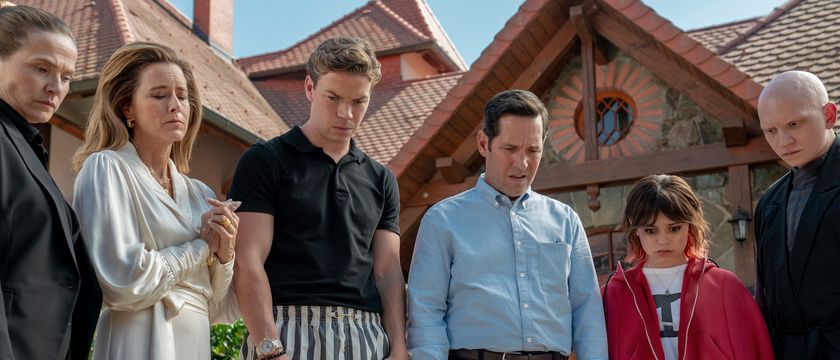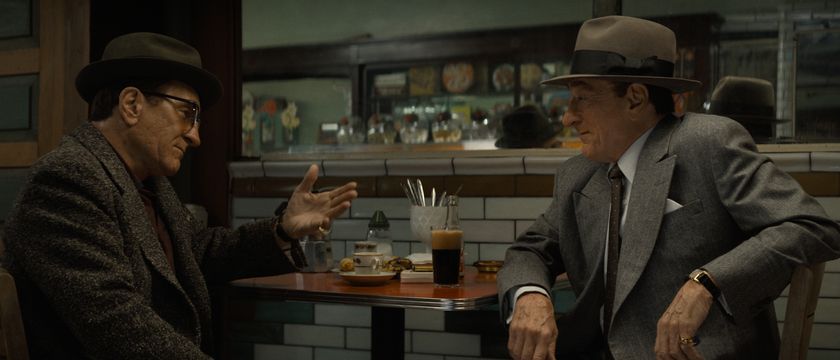The character Alex Cross doesn’t exactly have a great cinematic tradition. Within the last 15 years the book-born detective/psychiatrist has made his way to the big screen twice, first in 1997 with Kiss The Girls and again in 2001 with Along Came A Spider, and both were critical disappointments. The latest in the franchise, directed by Rob Cohen, not only fails to buck the trend, but will hopefully kill any future on-screen endeavors for the character.
Adapted from the series by James Patterson, Alex Cross treats its title character (played by Tyler Perry) like a figure that everyone in the world already knows, and while that isn’t really true it ends up being fine given how generic he is in the film. What’s harder to dismiss is the ridiculous story. For the length of the film Cross is hunting down a psychotic assassin known as Picasso (Matthew Fox), who has been killing and torturing people with connections to a powerful company (it doesn’t really go into much more detail than that). The problem with this, however, is that we only see Picasso talking to a handler once – when the character is first introduced – and spends the entire rest of the movie acting like a lone nutjob, leaving the audience to ignore the “larger conspiracy.” So when the other shoe drops at the end of the movie and it’s revealed that Cross has figured out who was responsible for organizing the killings, the audience is left shrugging their shoulders saying, “I guess that wraps things up.”
In addition to reducing Cross to being simply a cop with a psych degree, Picasso has no other character trait beyond being a crazy killer and isn’t even given any detail, motivation or back story. Supporting characters like Cross’ partners Monica and Tommy (Rachel Nichols, Edward Burns) are reduced to being blank slates so that the eponymous character has someone to explain ham-fisted exposition to, and great actors like John C. McGinley, Jean Reno and Giancarlo Esposito are given absolutely nothing to do. So not only is Alex Cross a bad, lazy movie, but a waste of talent as well.
And while you can’t blame the main actors for the shoddy script, their performances don’t exactly elevate the project either. Perry is a definite miscast as Cross, never able to connect with the character emotionally. Whether he’s supposed to be in a rage or deeply depressed, Perry always underplays it and fails to become the emotional medium for the audience. The worst culprit, however, has to be Fox. While the physical transformation he underwent for the part is impressive, his approach to the character is surface level and the entire movie you can see his efforts to act crazy. He mixes in twitches and bug-eyed stares, but you’re never convinced you’re looking at a psycho – just someone pretending to be a psycho.
If Cohen winds up taking anything away from his experience making this movie hopefully it’s that people experiencing seizures don’t make good camera operators. It goes far beyond the standard hand-held look that was successfully employed in films such as the Bourne trilogy and is not only detrimental to the audience’s experience watching the story, but caused me to walk out of the theater with a terrible headache. It’s impossible to figure out what’s going on during fight scenes, as Cohen’s style reduces them to nothing but flashes of skin and the occasional fist flying through the air. The whole thing is reminiscent of a five-year-old running around the house with a camcorder, but you typically don’t see those videos being played in theaters worldwide.
Alex Cross is a total trainwreck. You’d think it would be hard to mess up something as simple as a cop vs. killer story this badly, but Cohen and his crew seem to screw it up at every turn. Perhaps someday it will catch a cult following as a movie you drunkenly watch with friends and make fun of, but I’m not sure that it even has enough entertainment value to make that work. We’re all better off just forgetting it exists.

Eric Eisenberg is the Assistant Managing Editor at CinemaBlend. After graduating Boston University and earning a bachelor’s degree in journalism, he took a part-time job as a staff writer for CinemaBlend, and after six months was offered the opportunity to move to Los Angeles and take on a newly created West Coast Editor position. Over a decade later, he's continuing to advance his interests and expertise. In addition to conducting filmmaker interviews and contributing to the news and feature content of the site, Eric also oversees the Movie Reviews section, writes the the weekend box office report (published Sundays), and is the site's resident Stephen King expert. He has two King-related columns.













